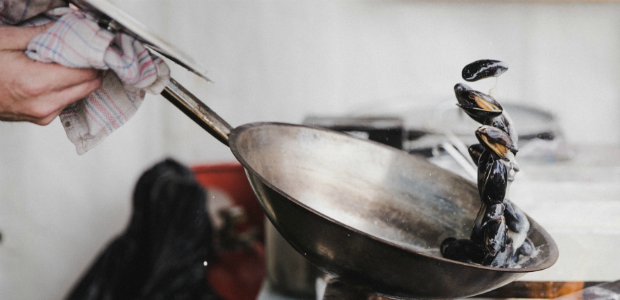Leading psychiatrist, author, and farmer, Dr Drew Ramsay says that bivalve molluscs are some of the most nutritious foods available with shellfish being one of the food groups associated with the evolution of our brains. Pretty fascinating stuff! What’s more, is that they’re a sustainable option and don’t break the bank.
It’s likely that if you don’t live on the coast, you don’t consume salty oysters or mussels all that often, if ever. It’s also possible that you enjoy eating mussels but don’t even know where to start when it comes to finding them and cooking them.
We’re here to help!
First things first – live or frozen?
If handled correctly, mussels can stay alive for about 4 days after they’re harvested. Frozen mussels are partially cooked, so be sure to thaw them completely and add to the cooking process later than live or chilled mussels. If you’re not a licensed forager, look for a reputable seafood purveyor in your area that has a regular supply.
Storing mussels if you aren’t going to cook them right away
Always see that the shells of the mussels you buy are closed and ensure they’re as fresh as possible. Clean them by first running them under running water to remove any sand and pull out the beard with a sharp knife. Fresh mussels can be covered with a damp cloth for 4 to 5 days in the fridge. They need oxygen so don’t keep them in a closed container with no air. Rinse them thoroughly before cooking.
Now try some of our recipes!
1. Quick potjie mussels in a creamy green curry sauce
5. Mussels in white wine and garlic with frites
NOTE: Mussels taste best when cooked at high heat for short periods of time to prevent them from shrinking and becoming chewy.
Love seafood? Try more recipes!

